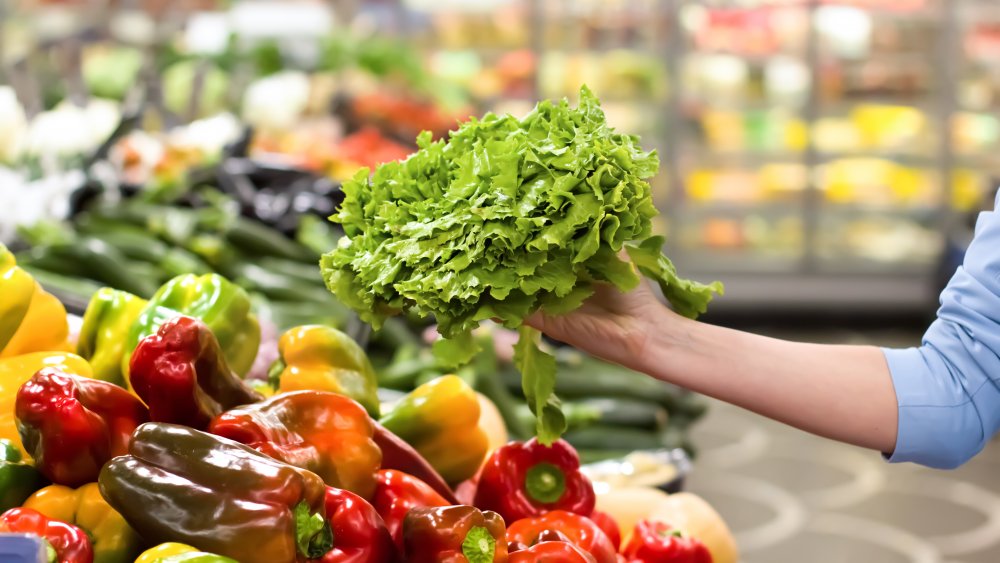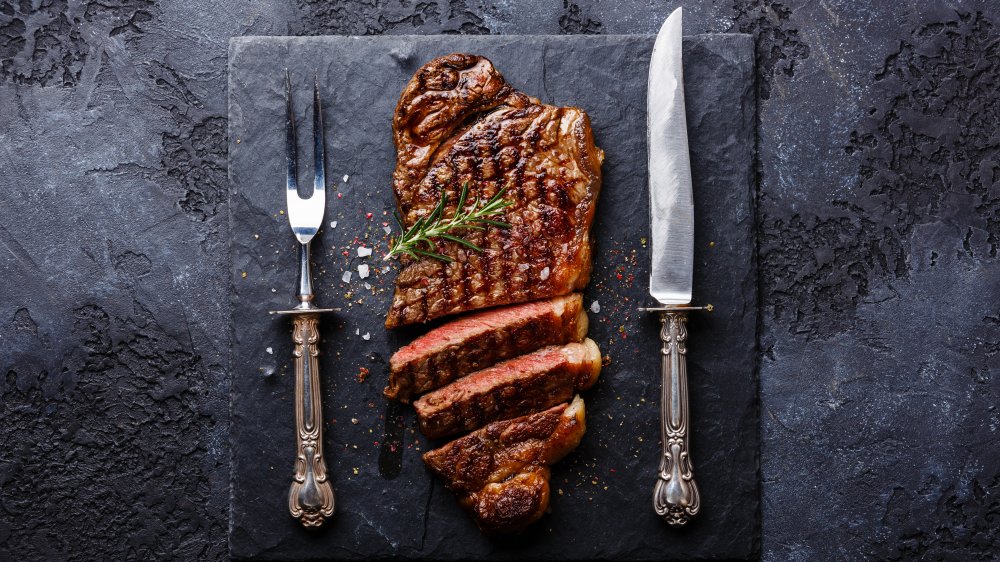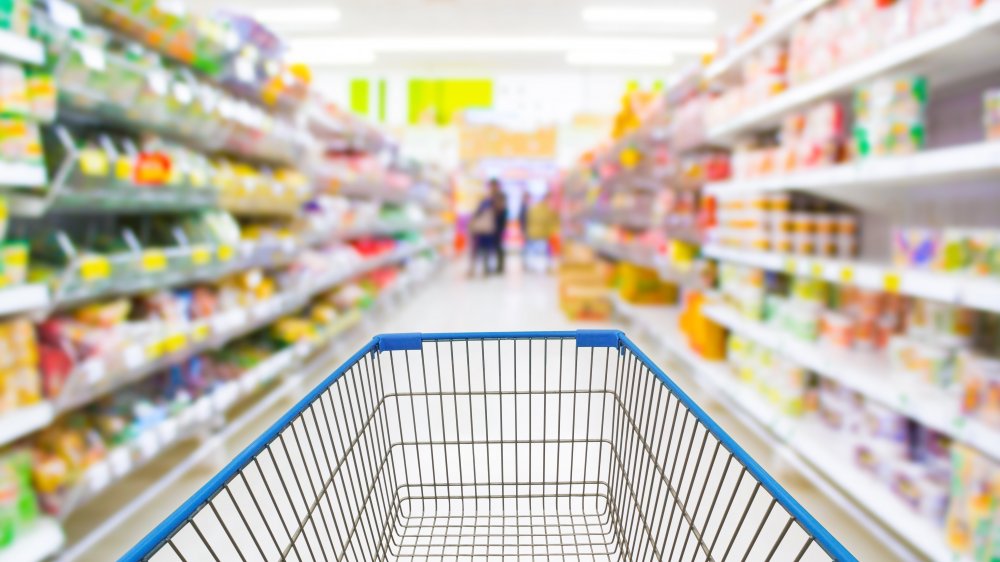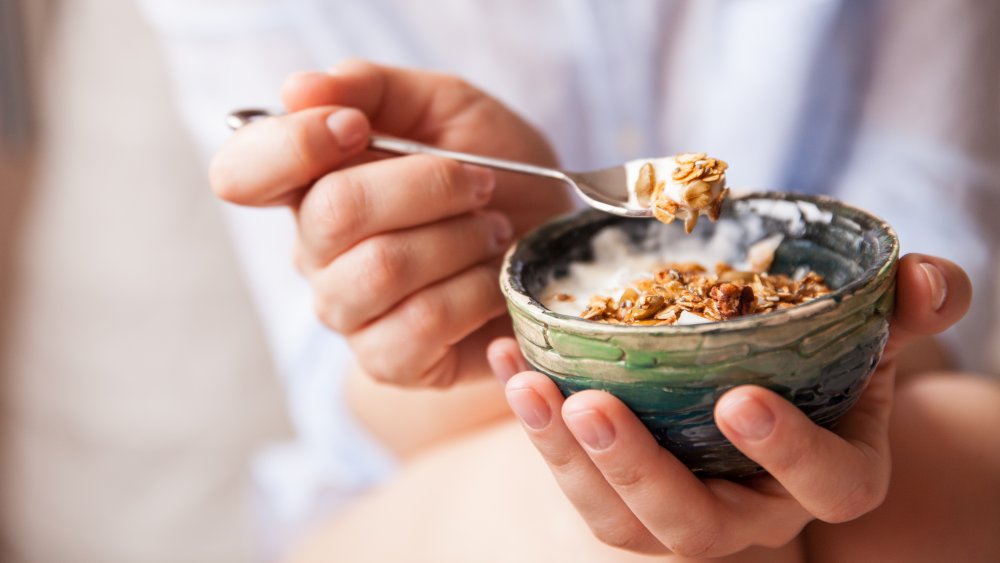Can You Get Coronavirus Through Food?
As the coronavirus continues to spread, so does the worry everyone is feeling as this once-localized outbreak transforms into a global pandemic. The number of confirmed cases in the U.S. keeps rising, and unfortunately, so does the death count. Supermarkets are running out of all manner of pantry staples including bread and even oat milk. The one thing not flying off the shelves is the unfortunately-named Corona beer, but this is entirely due to a misapprehension, as Corona beer will definitely not make you sick with its namesake virus.
Corona beer isn't the only food or beverage item which poses zero risk of spreading this dreaded virus. A spokesperson from the USDA's Food Safety and Inspection Service addressed this issue with HuffPost, stating "We are not aware of any reports at this time of human illnesses that suggest COVID-19 can be transmitted by food or food packaging." The German government agency Bundesinstitut für Risikobewertung issued a similar statement regarding the transmission of coronavirus. According to the BfR, "There are currently no cases which have shown any evidence of humans being infected... via the consumption of contaminated food..." They went on to admit that coronavirus could possibly be spread through contact with a recently-contaminated surface — perhaps a plate or table — but that this would be "only likely to occur during a short period after contamination, due to the relatively low stability of coronaviruses in the environment."
Can you get coronavirus from an infected animal's meat?
While there has been evidence that animals can be infected with COVID-19, and the CDC confirms it's possible to transmit the disease from animal to human, this doesn't apply to the meat we eat, thankfully. There just isn't any risk to us from the animal products we purchase and consume, and even if an animal was infected prior to being turned into your favorite cut of meat, there are ways to prepare your food safely to mitigate any risk.
If you wish to consume meat but are concerned by the fact that animals can also be infected by COVID-19, the Food Safety Authority of Ireland offers the reassuring information that thorough cooking should kill the virus. 30 minutes at 60ºC (140ºF) proved effective with SARS, and it's expected that this should have a similar effect on the coronavirus.
Avoid coronavirus while grocery shopping
While there may not be known cases to date of anyone who has caught or spread coronavirus through contaminated food, there are still certain food-related venues where it would be wise to take precautions. HuffPost suggests that while you're out at the grocery store stocking up your pantry, you should try to keep a few feet of distance between you and other shoppers — a practice known as social distancing — and you might also want to take advantage of any hand sanitizer or wipes the store may have on hand as a convenience to shoppers (assuming there's any hand sanitizer left, that is).
Oh, and you should probably lay off the free samples, on the off chance these are still being offered. Costco announced in early March that it would be suspending food sample distribution for the duration of the coronavirus epidemic, and it's likely that many other grocery stores will be following suit.
Avoid coronavirus while dining out
Restaurants, however, can be trickier territory. While the food as it's prepared will not make you ill with COVID-19, there is a small risk that your server may be infected due to the fact that restaurant workers often do not have paid sick leave and may not have medical insurance. If you're dining at higher-end restaurants, or you live in an area where there have been no reported virus outbreaks, this may be less of an issue, but it's still something to keep in mind.
In fact, in some instances, you may no longer have the choice as to whether you want to risk eating out. A number of states have ordered that all bars and restaurants be closed as long as the virus is a severe threat, and fast-food chains including Starbucks, Chick-Fil-A, Taco Bell, and even McDonald's have ceased offering dine-in service. Of course, they are still providing the safer option of takeout, or if you're really committed to social distancing, there's even contact-free delivery – some of which is fee-free, as well!
Still feeling worried? Bear this in mind — there is hardly any chance that coronavirus-contaminated food is going to make you sick, but avoiding food entirely has a 100 percent chance of proving fatal.



